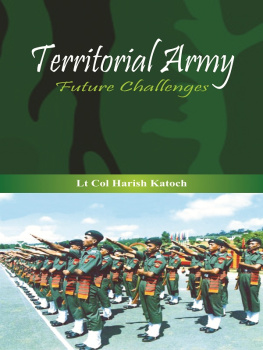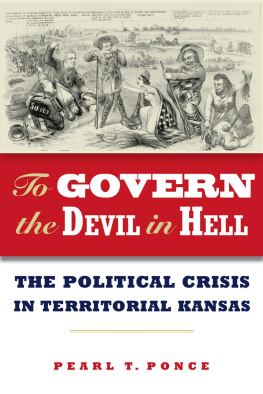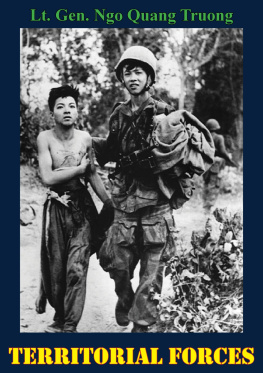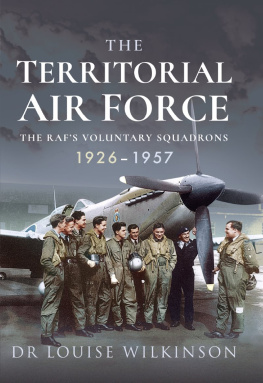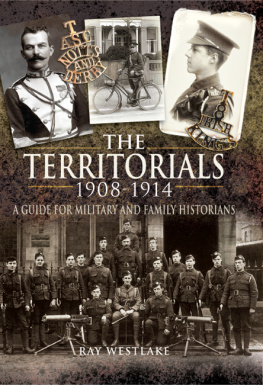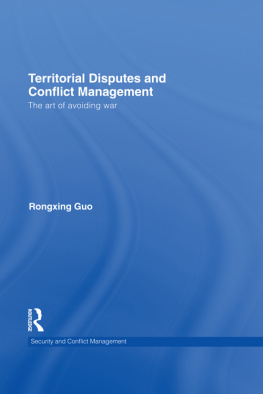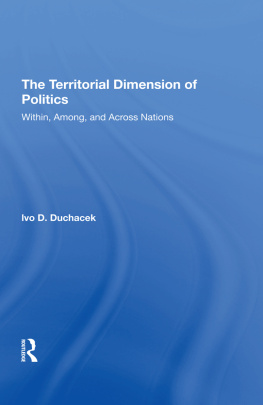TERRITORIAL ARMY: FUTURE CHALLENGES
Published by
Vij Books India Pvt Ltd
(Publishers, Distributors & Importers)
2/19, Ansari Road,
Delhi - 110002
Phones: 91-11-43596460, 91-11-47340674
Fax: 91-11-47340674
e-mail:
Copyright United Service Institution of India, New Delhi
All rights reserved.
No part of this book may be reproduced, stored in a retrieval system, transmitted or utilized in any form or by any means, electronic, mechanical, photocopying, recording or otherwise, without the prior permission of the copyright owner. Application for such permission should be addressed to the publisher.
The views expressed in the book are of the author and not necessarily those of the USI or publishers.
CONTENTS
Introduction and Historical Perspective. |
Formalisation and Growth of Territorial Army Post-Independence. |
Relevance of Territorial Army in Present Security Scenario. |
Benefits of Territorial Army. |
Citizens Armies of Other Countries: An Overview and Analysis. |
Concept of Home and Hearth and its Future Relevance. |
Need for Territorial Army Footprint across the Country. |
Balancing Regular Army and Territorial Army in Futuristic Scenario: a Way Forward. |
Scope of TA-isation in Various Arms and Services. |
New Areas for Territorial Army. |
Review and Reorganisation of Territorial Army. |
Recommendations. |
FOREWORD
It is a distinct pleasure to sign the foreword to the book on Territorial Army written by Lt Col Harish Katoch. It is a subject of much value, is contemporary and relevant in changing environment.
Throughout the last century, the phenomenon of reorganizing, down scaling or up scaling of combat forces has been seen emerging with recurring frequency. The Territorial Army itself has seen many reviews, prime ones being after the WW I, after the independence and after Operation Prakram. The US National Guards and the UK Territorial Army are again being refurbished after their experiences of the recent wars in Iraq and Afghanistan. The statecraft dictates that the prevailing warfare and defence concepts are reviewed from time to time so that they remain contemporary and relevant; and cater to futuristic environment. In this context, the Book is a valuable step forward.
Demand of forces generally exceeds supply and availability is consumed as quickly as it is established. In a security scenario which is defined by high risks through crystal gazing, there will always be thirst for greater punch; irrespective of the costs. The transformation of Army and creation of many value assets also dictate requirement of additional forces. How does one balance the equation between requirements, risks and cost? Territorial Army is one such instrument which can help in achieving the balance. Due to its inherent flexibility and ability to upscale and downscale and also its availability as a feeder to the main forces, it assumes a critical position. In the emerging scenario, requirement for specialized trades is assuming importance. Recently, the US and the UK have been looking towards creating Cyber National Guards/Territorials. The advantage of local knowledge remains one of the key factors in favour of Territorial Army. As such, it becomes relevant to have a de novo look at the Territorial Army, a task which has been adequately performed by Harish Katoch.
Harish has covered the subject of his study in a lucid manner, providing an excellent background and perspective. He has built his case for review through very apt discussion and logical arguments. Many of his suggestions and recommendations are compelling and worthy of evaluation by our planners and economists. The study could also become a precursor for further research on the micro aspects. Our strategic Think Tanks and those involved in futuristic planning need to address the subject of Territorial Army more forcefully to further build on this great flexible Institution. They can find many answers to lingering problems in the Book.
It has also been a good intellectual exercise to engage with Harish Katoch during the course of discussions on the subject. I commend him for producing a valuable document on which not much material is available in the open domain.
- Major General HK Singh (Retired)
PREFACE
Coping with changing security scenario in todays context is a big challenge for our nation. The enemy can show up in its various manifestations threatening every conceivable aspect of the society. The Territorial Army (Citizens Army) is an ideal tool which is flexible enough to fill the vacuum and cater for all asymmetric requirements in the current fluid security environment. Conventional threat will only be one part of enemy design in future conflicts. A determined enemy will try and convert any village, town or city into a potential frontier in future wars. It is with this purpose in mind that an effort has been made to address rudimentary security challenges that our country may face in future. Two of the many important challenges that our developing country is likely to face are:-
- Balancing the twin factors of National Security and Maintaining adequate strength of Armed Forces.
- Creation of large reserve force in the country by volunteer participation of leaders and common citizens by way of enrolling into Part-time Army (Territorial Army).
The objective of writing the book on Territorial Army is to identify futuristic requirements and potential challenges for this instrument of national importance as also to review its current organization to suggest better options for its optimal employment. The book is laid out in 12 chapters through which a graduated approach has been made to analyse the importance of peoples participation in the defence of the country.
ACKNOWLEDGEMENT
Territorial Army: Future Challenges was written as a Research Paper based on my passion and regard for the subject. I am convinced that the concept of Territorial Army (TA) has a tremendous potential to bring the society closer to security mechanism and intertwine the citizens into defence of the country. It provides level field to all citizens to live their dream of donning military uniform on part-time basis in the service of the nation.
I am thankful to United Service Institution of India for having gauged the importance of the subject and accepting my research proposal. My sincere thanks to Major General (Retired) YK Gera, Consultant and Head (Research) and Major General (Retired) PJS Sandhu, Deputy Director and Editor for having faith in me and keeping me motivated throughout my stay at USI. They have shaped my work through their suggestions and timely advice.
The random expressions in the book contain aspirations, hope and contributions of all Territorials - serving and retired. In the absence of adequate documented material available on the subject in open domain, the solace always came from the TA fraternity in form of formal/informal contributions. I am really thankful to all those who despite their busy schedules gave me timely inputs to attempt this nascent subject. I am indebted to Brigadier (Retired) KP Singh Deo - a Terrier himself, for having spared his valuable time for chairing one of my presentations at USI and sharing his thoughts on future of TA. I sincerely thank him for encouraging and re-igniting the passion in me to write on the subject.

